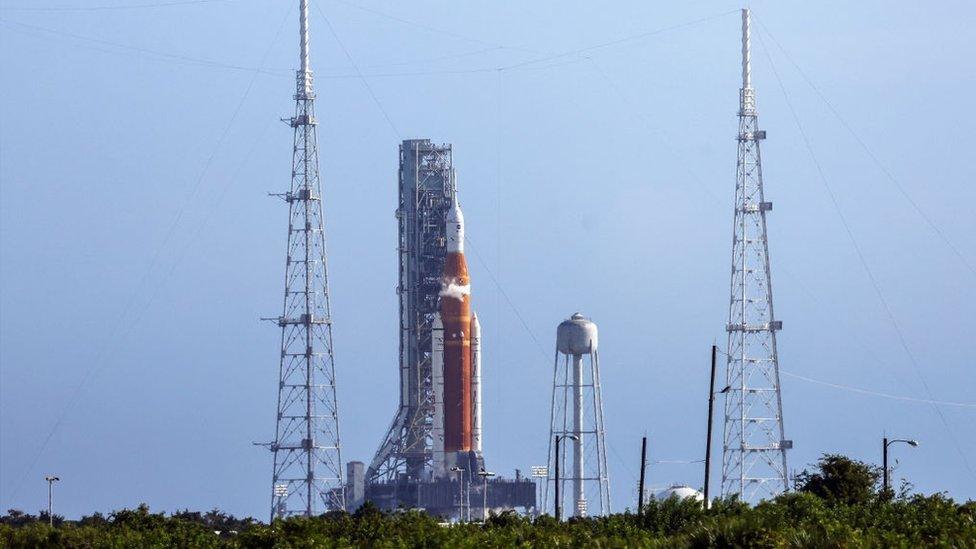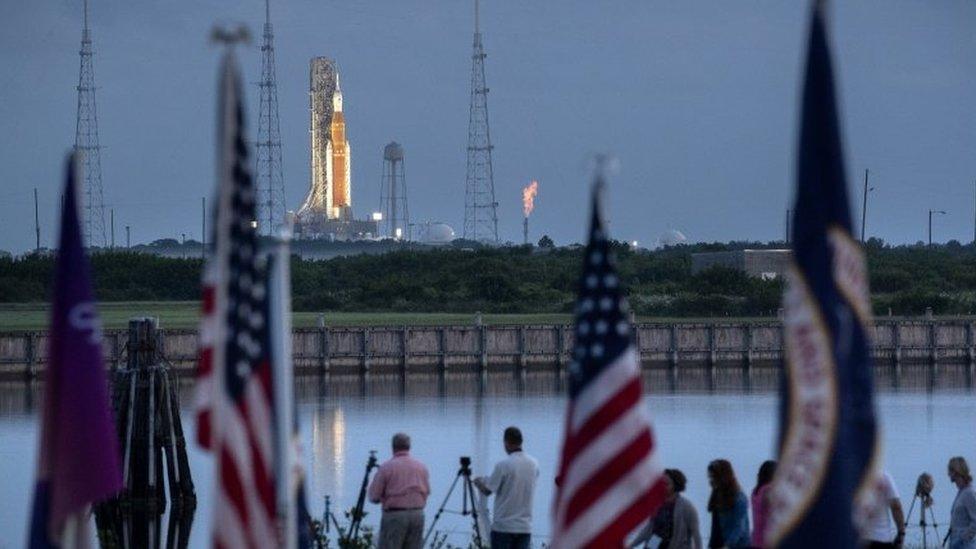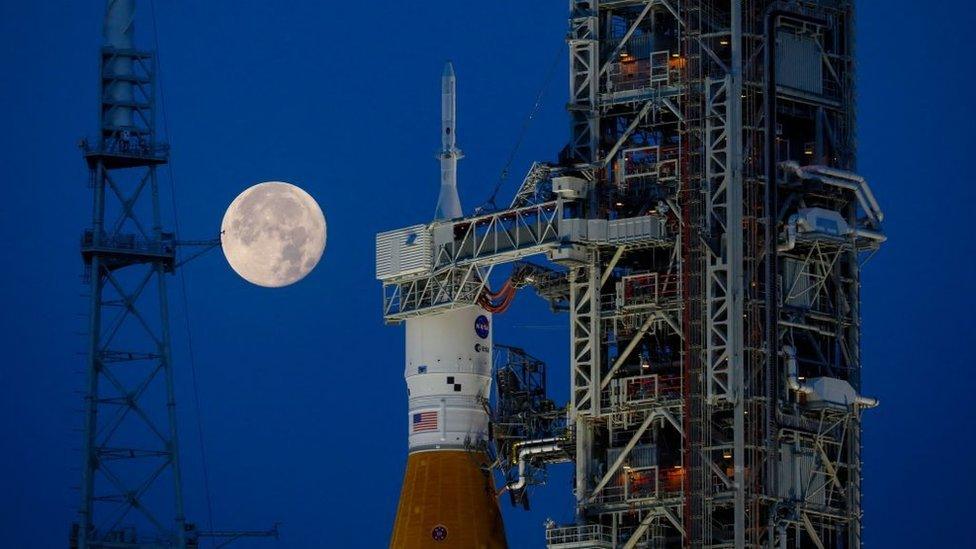Artemis 1: Nasa cancels Moon rocket launch for second time
- Published
- comments

The Space Launch System - or SLS - is Nasa's most powerful ever rocket!
Nasa has had to delay the launch of its new Artemis I Moon rocket - for the second time in a week.
The test flight, which had no crew, was called off because of a liquid hydrogen leak.
The US Space Agency first tried to launch the rocket - known as the Space Launch System (SLS) - on Monday but cancelled that launch just 40 minutes before lift-off because of engine problems.
Engineers now want to inspect the rocket, and any repairs may need to happen in the workshop rather than on the launch pad which means we may not see a third launch attempt before next month.
What happened?

Crowds gathered near Cape Canaveral in Florida hoping to witness the historic blast-off
Nasa's Moon rocket, known as the Space Launch System is the biggest and most powerful rocket ever developed by Nasa.
It will be used to send astronauts and their equipment back to the Moon.
Much of the SLS's enormous power comes from burning almost three MILLION litres of super-cold liquid hydrogen and oxygen in four big engines.
But when engineers start to fill up the rocket's hydrogen tank, an alarm went off, which showed that there was a leak.
Controllers tried several different ways to try and fix the problem but were unable to do so.
Nasa's massive new Moon rocket, the Space Launch System (SLS), is 98 metres in height - that's two metres taller than London's Big Ben!
Nasa's Artemis mission manager Mike Sarafin said the rocket's important future role in human spaceflight meant that extreme care was needed.
He said: "We're going to fly when we're ready.
"And as part of this initial test flight, we're learning the vehicle; we're learning how to operate the vehicle," he added.

Artemis I is set to launch from Florida's famous Kennedy Space Center but the date has been pushed back twice because of engine leaks
Engineers now want to inspect the rocket, and any repairs may need to happen in the workshop rather than on the launch pad.
Rolling the vehicle back to the engineering building located a few miles away makes a third lift-off attempt before the middle of October unlikely.
Nasa added that the decision when to attempt a third launch "will really depend on the options that the team comes back with likely on Monday or early Tuesday morning."
